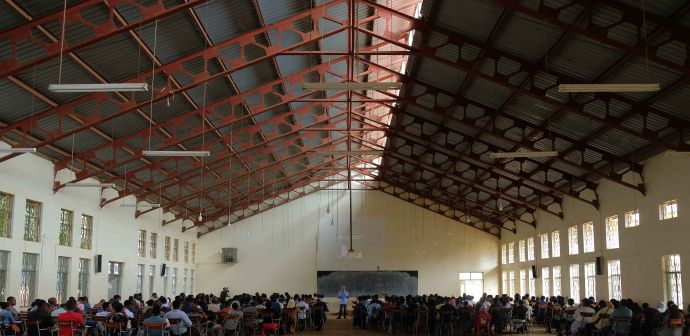
How do you say “Safeguarding” in Swahili? The answer is: you don’t.
The topic of Safeguarding is still so new in Tanzania (where Swahili is the national language), that you need at least three words to adequately express what it means: “ulinzi na usalama” – literally “providing protection and safety”.
Knowing the right words to express complex ideas is basic to effective communication.
Seán-Patrick Lovett is Media Advisor to the Institute of Anthropology (IADC) where he teaches courses in Safeguarding and Communication. That’s why the Catholic University of Mwenge in Kilimanjaro recently invited him to Tanzania to do exactly that.
Over 500 students, faculty and staff of the university, attended his workshops that began by focusing on terms and definitions: learning how to apply the concepts of “grooming” (“ushawishi”), or “vulnerable persons” (“watu walio hatarini”), within Tanzanian culture. Distinguishing between “victims” and “survivors” proved particularly challenging because in Swahili there is only one word (“mwathirika”) to describe them both.
When the local bishop heard about the workshops, he requested one for all 250 priests of his diocese. Speaking openly about abuse in general, and sexuality in particular, is still largely tabu in East African culture. Which is why it was important to present the topic of Safeguarding as something positive and proactive, stressing how Tanzania already has protocols and legislation in place: the “Law of the Child Act” of 2009, and “Guidelines on Child Online Protection” of 2020, for example.
Participants at the workshops (including the bishop) went away expressing their commitment to the three terms that are central to Safeguarding: “transparency” (“wajibu”), “compliance” (“kufuata”), and “accountability” (“uwajibikaji”).
In Swahili, all three terms sound much more convincing when spoken aloud than they appear in writing. That’s because, fortunately for most of us, words in Swahili are pronounced exactly the way they look!

